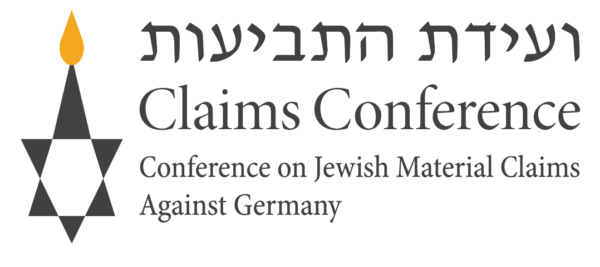Article 2 Fund: Overview & History

The Claims Conference has approved over 100,000 Holocaust survivors for payment from this fund and has paid a total of approximately $4.9 billion.
From the earliest negotiations, in 1952, West Germany recognized its obligations in principle to provide compensation to Holocaust survivors. In contrast, despite the Claims Conference’s many efforts, the Communist East German government flatly denied any such responsibility. In 1990, when West and East Germany were negotiating their unification agreement, the Claims Conference was determined that the unified Germany should meet its obligation to compensate survivors of the Holocaust who had previously received little or no indemnification.
With the active support of the U.S. government, the Claims Conference engaged in intensive negotiations with the German government. As a result, further compensation was promised in Article 2 of the Implementation Agreement to the German Unification Treaty of October 3, 1990, which reads: “The Federal Government is prepared, in continuation of the policy of the German Federal Republic, to enter into agreements with the Claims Conference for additional Fund arrangements in order to provide hardship payments to persecutees who thus far received no or only minimal compensation according to the legislative provisions of the German Federal Republic.”
The resulting agreement, known as the Article 2 Fund, was the outcome of 16 more months of difficult negotiations. Compensation is in the form of monthly payments.
The Claims Conference continued negotiating with Germany to expand the eligibility criteria for Article 2 as well as the Central and Eastern European Fund (CEEF).
Achievements as a result include:
- In the mid-1990s, Article 2 pensions were granted to an additional 25,000 prospective claimants, through the easing of fund eligibility criteria. Until these talks, Article 2 eligibility was restricted to those survivors who met all fund criteria, including those whose income was not greater than $16,000 for a single individual or $21,000 for a married couple. These limits were liberalized when the Claims Conference attained the exclusion of social security payments from the computation of annual income for persons age 70 and older who met all other fund criteria.
- Additional groups of survivors – such as Jews incarcerated in special camps in Austria, the copper mines in Bor, Yugoslavia, and in labor battalions for Hungarians on the Ukrainian front — were also declared eligible for compensation under the Article 2 Fund in 1999, assuming they met other fund criteria. Compensation of these additional people under the Article 2 Fund, as a result of Claims Conference negotiations, increased the annual compensation expenditures of the German government by DM 45 million.
- In 2002, the German government agreed to recognize previously unrecognized camps and work battalions in Romania and other places for purposes of eligibility for the Article 2 and CEE Fund payments, thus increasing the number of potentially eligible applicants.
- In 2003, the Claims Conference negotiated an increase in Article 2 and CEE Fund payments linked to the BEG cost of living index and the inclusion of additional non-recognized camps in Hungary. In addition, certain persons who were citizens of Western countries at the time of persecution and had been previously unable to apply may now, under specific circumstances, receive Article 2 payments.
- In 2004, the Claims Conference negotiated the inclusion of previously unrecognized camps in Bulgaria and the payment of persons over age 18 who lived illegally under false identity or with false papers and who meet all other eligibility criteria of the funds.
- In 2005, the German government agreed to include Holocaust survivors incarcerated for at least six months in certain labor camps in Hungary, Tunisia, Morocco, and Algeria, and who meet all other eligibility criteria of the funds.
- In 2006, the Claims Conference negotiated the inclusion of prisoners in three Tunisian internment camps who meet all other eligibility criteria.
- In 2007, the Claims Conference attained significant liberalizations to income criteria for eligibility for Article 2 payments.
- In 2008, the Claims Conference secured an agreement that certain Holocaust survivors who were citizens of Western European countries at the time of their persecution and were in concentration camps or ghettos or who lost a family member and received payment(s) from a German government source, may now for the first time be eligible for Article 2 payments. This amendment concerns those Holocaust survivors from Western Europe who received a payment from one of many compensation agreements that Germany reached with respective European countries in order to provide payments to certain citizens of those countries. This agreement was expanded in 2010 to include additional survivors.
- In 2010, the German government agreed to a special review of applications from survivors who were in a concentration camp for less than six months.
- In 2011, the Claims Conference negotiated the time period for incarceration in a ghetto or life in hiding or under false identity from 18 months to 12 months for eligibility. In addition, survivors age 75 or older who were in a ghetto for three to 12 months became eligible for special pensions.
- In 2012, the German government agreed that the special pensions for survivors age 75 or older who were in a ghetto for 3 to 11 months could be paid to any eligible survivor who lived under these conditions, regardless of current age, and that the amount of these pensions would increase to €300 per month. The Claims Conference also negotiated to reduce the time from 12 to 6 months that victims had to have lived in hiding or under false identity in Nazi-occupied territories in order to be eligible for Claims Conference pensions.
- In 2013, the Claims Conference negotiated an increase in the income limit for applicants from $16,000 to $25,000 as of July 1, 2013. The German government also agreed to include survivors of certain “open ghettos” in the program as of January 1, 2014.
- Increases in payment amounts over the years.
Please Note: The amount of Article 2 compensation is set by the German government and is a fixed Euro amount. Currency exchange fluctuations between the Euro and other currencies will affect the amount of compensation payments received when the Euro is converted into local currencies.

